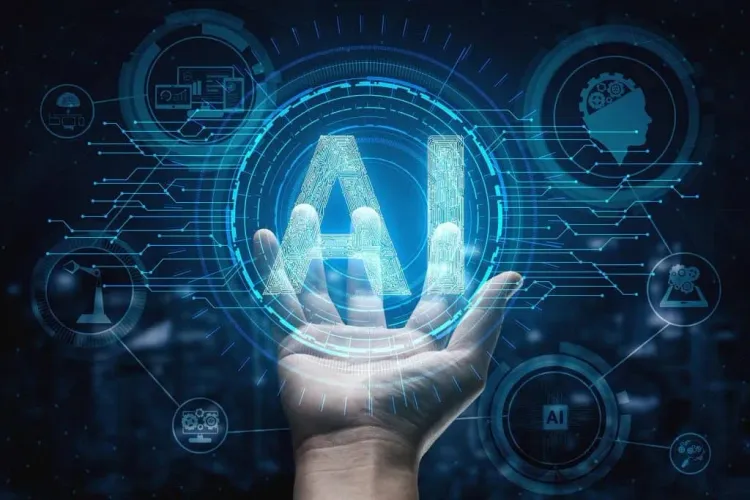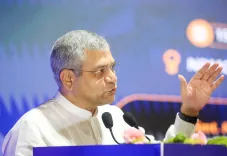Could AI Contribute $1.9 Trillion to India's Economy by 2035?

Synopsis
Key Takeaways
- AI has the potential to add $1.9 trillion to India's economy by 2035.
- India could capture 10-15% of the global AI value.
- Key sectors include banking, manufacturing, and pharmaceuticals.
- Challenges include infrastructure access and skill shortages.
- The government has launched the IndiaAI Mission to support AI initiatives.
New Delhi, Sep 15 (NationPress) Artificial Intelligence has the potential to revolutionize India’s economic landscape over the next decade, potentially adding as much as $1.9 trillion to the nation’s economy by 2035, according to a recent report released by NITI Aayog on Monday.
On a global scale, the adoption of AI is projected to create a value between $17 trillion and $26 trillion in the next ten years, as outlined in the report titled ‘AI for Viksit Bharat: Roadmap for Accelerated Economic Growth’.
India stands to seize approximately 10–15 percent of this value, leveraging its robust STEM talent and research infrastructure.
The report indicates that if AI is fully integrated, India’s GDP could soar to $8.3 trillion by 2035, in comparison to the current growth trajectory of $6.6 trillion. AI could play a crucial role in closing 30–35 percent of the growth gap faced by the country.
The analysis identifies key sectors such as banking, manufacturing, and research-intensive industries like pharmaceuticals, electric vehicles, aerospace, and semiconductors as critical areas where AI can instigate significant changes.
Notably, Generative AI could lower research expenses, remove entry barriers in multi-billion dollar sectors, and accelerate innovation in areas like biopharma, auto components, and SpaceTech.
To facilitate this transition, the government has initiated the IndiaAI Mission with a substantial budget exceeding Rs 10,000 crore.
This initiative will concentrate on developing India-specific large language models, deploying 38,000 GPUs, and establishing AI laboratories in Tier-2 and Tier-3 cities to enhance nationwide adoption.
Nevertheless, the report also highlights challenges. Many MSMEs still struggle with inadequate access to infrastructure and data.
Furthermore, India faces a deficit of skilled professionals in fields such as robotics, chip design, and battery technology.
Consent-based data sharing, robust policy frameworks, and workforce reskilling will be essential, especially as AI could redefine 35–40 percent of jobs globally.
The report urges immediate collaboration among government, industry, and academia to make India the “data capital of the world” and a center for advanced technologies.
In tandem, NITI Aayog has also introduced the ‘Frontier Tech Repository’, which features over 200 real-life examples of how advanced technologies are enhancing lives across India.
This repository will assist states in replicating successful solutions and promoting widespread adoption.
NITI Aayog CEO B.V.R. Subrahmanyam emphasized that India cannot evolve into a developed nation without substantial investment in advanced technologies.
“To leverage technology effectively, we must stay ahead. Identifying trends, raising awareness, and utilizing these technologies will prepare India for the future,” he stated.









